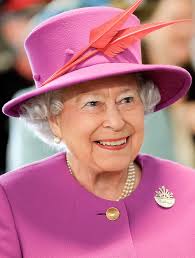The world, last week, received news of the death of Queen Elizabeth II, who passed at the age of 96, drawing to a close the country’s second Elizabethan era and heralding the reign of King Charles III.
Her reign of 70 years and 214 days was the longest of any British monarch and the second-longest recorded of any monarch of a sovereign country.
The news of her passing was announced on Thursday September 8, 2022 by Buckingham Palace at 18:30 BST by publishing a statement, following another statement earlier in the day about her deteriorating health.
At a young age of 25, Princess Elizabeth Alexandra Mary, as she was then known, became Queen of the United Kingdom and other Commonwealth realms on February 6, 1952 after the death of her father, King George VI.
Queen Elizabeth’s reigned through major political changes such as the troubles in Northern Ireland, devolution in the United Kingdom, the decolonization of Africa, and the United Kingdom’s accession to the European Communities and withdrawal from the European Union. The number of her realms varied over time as territories gained independence and some realms became republics.
The death of Queen Elizabeth II has drawn condolences from many leaders across the African continent.
President Cyril Ramaphosa of South Africa in his condolences to Britain’s new monarch, King Charles III, said that Queen Elizabeth II was “an extraordinary and world-renowned public figure who lived a remarkable life”.
Nana Akufo-Addo, the president of Ghana, where she visited two times during her reign, recalled the Queen’s “calm, steadiness, and, above all, her great love and belief in the higher purpose of the Commonwealth of Nations, and in its capacity to be a force for good in our world”.
William Ruto, due to be sworn in as president of Kenya on September 13, said that, “the queen’s leadership of the Commonwealth for the past seven decade is admirable,” while the outgoing President Uhuru Kenyatta said, the Queen “was a towering icon of selfless service to humanity.”
President Paul Kagame of Rwanda described “the modern Commonwealth” as the Queen’s legacy.
Back here in Nigeria, President Muhammadu Buhari paid glowing tribute to her “towering global personality.” According to Buhari, “the story of modern Nigeria will never be complete without a chapter on Queen Elizabeth II, an outstanding leader, who dedicated her life to making her nation, the Commonwealth and the entire world a better place.
With the outpouring of condolences from across the continent, it is clear the relationship Africa has with the British Monarch and how significant Africa is for the late Queen.
As a young princess, her first overseas tour was here in Africa, where she celebrated her 21st birthday in Cape Town, South Africa, in April 1947, where she went on to give one of her most famous speeches in which she vowed to devote her life to the peoples of Britain and the Commonwealth.
In her words; “I declare before you all that my whole life, whether long or short, will be dedicated to your service and to the service of our great family of the Commonwealth, the empire to which we all belong.”
Africa holds such a significant place in the reign of Her Majesty in many ways. For instance, it was in Kenya in 1952 while representing the ailing King George VI, when she received the news that her father had died. She immediately returned to London as the new Queen.
Throughout her reign, Queen Elizabeth II was witness to the disintegration of the British Empire and the surge of African independence.
Despite the tumult, she was able to maintain ties with the English-speaking countries of the continent, such as Ghana, the first country to gain independence in 1957, where she went in 1961.
Her fondness for Africa was further demonstrated when she met the influential Ghanaian President Kwame Nkrumah on this occasion, and even danced with the pan-Africanist leader.
Queen Elizabeth showed her anti-racism credentials when she sparked global headlines by dancing with Ghana’s president in 1961 while America was still facing segregation.
Her time as the Head of the Commonwealth saw the introduction of many actions intended to promote equality.
Gabonese president, Ali Bongo, puts the Queen and Africa’s relationship in better perspective when he said, “Queen Elizabeth II was a great friend of Africa and Africa was affectionate towards her in return.”
She had a close relationship with the late Nelson Mandela. Former Prime Minister, Gordon Brown, has ones revealed that and the anti-apartheid leader was one of the few persons who was allowed to refer to the Queen on a first name basis.
Africans respect her commitment to a multiracial commonwealth, and in recent years during her reign, the Commonwealth has opened its doors to countries that were never British colonies as it seeks to maintain its relevance in a changing world.
Its members now include former Portuguese colony Mozambique, and its two most recent new members Gabon and Togo, which joined on 25 June, once ruled by France.
As tributes keeps trooping in honour of the Queen, the emergence of a new king offers a vista of opportunity for Africa to further strengthen their relationship with the Britain.
The continent must cash in on the Royal’s fondness for the continent. Luckily, Prince Charles, as he was then, had at the last Commonwealth Heads of Government Meeting, CHOGOM, in Kigali, Rwanda, pledged his commitment to Africa’s realisation of SDGs.
While the continent hopes the new King Charles III makes good his pledge and also maintains the relationship the continent enjoys with the Royal Family, African leaders should work towards forest reservation as advised by the prince.
Africa remains a major player in global economy and so it must seek ways of maneuvering through the current economic crunch by tackling issues of hunger, diseases, terrorism, and other challenges that have continued to taint the image of the continent.



